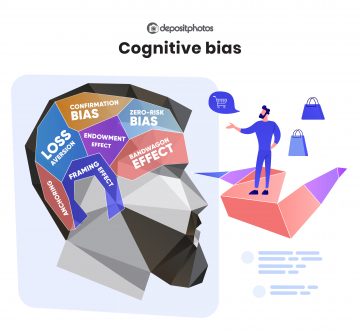
experiencing vision loss, getting fired). The studies in question covered a total of 79 unique life events, ranging from relatively minor misfortunes (developing arthritis, breaking a bone, etc.) to more serious outcomes (e.g. If so, the core of our personalities may have more to do with caution than cockeyed optimism. Our article in Organizational Behavior and Human Decision Processes posits that much of the human response usually ascribed to optimism bias is actually a smokescreen to ward off social disapproval. To fill in the gaps, my co-authors (Stefano Puntoni, Gabriele Paolacci, and Maarten Vissers of Rotterdam School of Management) and I revisited data from 28 past studies on optimism bias, encompassing 8,826 participants in all. The predictors identified in past studies could largely be proxies for a correlated cause: embarrassment.

If this pattern applies more widely, there could be a good deal of pretence baked into the optimism bias, a possibility totally neglected in previous research. In the case of STDs, people might be reluctant to admit perceived susceptibility for fear of what that would reveal about their private lives. It seems likely that his or her irrationally optimistic responses would be motivated not by controllability per se, but more precisely by embarrassment to admit his or her elevated risk stemming from a totally needless habit. Now, however, imagine a closet smoker participating in such a study. Similarly, since risk for sexually transmitted diseases (STD) can be avoided by using appropriate protection, people demonstrate greater unrealistic optimism for STDs than for diseases that cannot be so ‘easily’ avoided (e.g. Since lung cancer risk is increased by smoking, a voluntary activity, it should automatically inspire more unrealistic optimism than risk for cancers that appear to strike more randomly. In other words, the more control you have over the likelihood of something bad happening to you, the more you’ll deny your susceptibility to it. In particular, unhappy outcomes that are presumed to be controllable (and hence, avoidable) are associated with high levels of unrealistic optimism. those that are more severe, frequent or aligned with social stereotypes. Some hypothesise that the bias is more sensitive to certain types of negative events, e.g.

Since the optimism bias was first discovered in a seminal 1980 study, researchers have been trying to figure out how it works. Popular media’s embrace of this research has recently produced a bestselling book and a spate of articles blaming unrealistic optimism for everything from stock market bubbles to the election victory of Donald Trump. For their part, many neuroscientists argue that our brains are engineered for optimism, which if true would certainly explain the durability of the bias. The so-called “optimism bias” persists even after people have been given true information about risk, research finds. That’s what most experts in the social sciences contend, based on a mountain of studies showing that people consistently report being at less risk than others of experiencing negative life events. Behavioural biases are hypothesised to be a key component of affective states, whose evolutionary function is to prioritise the allocation of resources towards the currently most important fitness-relevant activities.Whether you know it or not, you’re probably an optimist.

Empirical evidence from a range of species can be interpreted as supporting predictions of these models. Normative models show that optimistic and pessimistic behavioural biases can be adaptive in the face of risk or uncertainty. biased) cognitive representations of the probabilities of either rewards or punishers. Such relative behavioural biases can arise from various cognitive mechanisms, and do not require inaccurate (i.e. I define a behavioural decision as relatively optimistic if it is consistent with the animal having either, a higher expectation of reward, or a lower expectation of punishment (threat), than the same animal in a different state (or a different animal). To address the adaptive value of optimism/pessimism an operational definition is required.


 0 kommentar(er)
0 kommentar(er)
